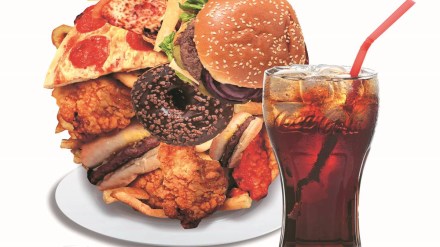In light of the changing lifestyles and eating out becoming an everyday habit rather than a rare indulgence, foodservice operators need to be at the top of their game with healthy and safe offerings. Recently, McDonald’s India faced a controversy regarding the use of cheese substitutes instead of 100 per cent dairy-sourced cheese in its popular products. The incident highlighted how a single lapse can lead to the loss of trust and goodwill even for a renowned brand. It also brought to the fore the importance of correct labelling and the authenticity of ingredients, said GlobalData.
Jaya Dandey, Consumer Analyst at GlobalData, said, “Global fast food companies are increasingly gaining traction in India owing to its huge population and the cost-effective choices of consumers. With the growth potential also comes significant responsibility and accountability on the part of operators. The McDonald’s fiasco resulted in renewed scrutiny by the state of Maharashtra on all major foodservice providers for compliance with food standards.”
Francis Gabriel Godad, Business Development Manager, GlobalData India, added, “Young and upwardly mobile consumers worldwide increasingly demonstrate a preference for convenient fast food. According to a GlobalData survey, 51 of Indian consumers admitted that their spending at quick-service restaurants is very high or quite high. This validates the popularity of fast-food chains in India and the loyal consumer base most of them have. Recalls and ethical non-compliance in the food industry lead to big losses in profitability, putting the onus on fast-food chains to put in consistent efforts to retain customer loyalty.”
Dairy products such as cheese are widely used in fast food products, and customers place high priority on the taste and texture they provide. However, some inexpensive vegetable oil-based substitutes provide profit margins to the operators while offering the same textural elements. Indian consumers are wary of artificial alternatives in food products, not only for sensory reasons but also for safety concerns. This emphasizes the need for timely investigations and quality control of the ingredients being used, said Jaya Dandey.
Francis Gabriel Godad concluded, “When consumers spot mislabeled or subpar ingredients at their chosen foodservice venues, they lose trust in the brand and switch to competitors, often for good. Moreover, with the power of social media, it does not take long for a single mishap to irreparably damage the label’s image. Furthermore, health and wellness have become focal points and are making consumers rethink their dietary choices altogether.”
When asked how they see their lifestyle evolving in the next three months, 82 per cent of the survey respondents in India said that they would start to cook meals at home from scratch, continue doing it, or do it more frequently. Service inconsistencies of foodservice providers and failure to comply with regulations will only reinforce such consumer attitudes in the long run, the report stated.
However, yhe apex food safety standards regulator of the country, the Food Safety and Standards Authority of India (FSSAI) under the administration of the Ministry of Health and Family Welfare, has verified the cheese used by McDonald’s India as ‘100% Real Cheese’. The verification confirms the brand’s assertion that it uses 100% Real Cheese and that it does not use any cheese analogues or substitutes in any of its products.
The confirmation from the FSSAI explicitly states that “Articles in question contain Cheese or cheese product as a part of composition and does not contain analogue in dairy context in any form”. This clean chit is a testament to McDonald’s India’s commitment to upholding stringent food quality standards across all its restaurants, at all times.
Saurabh Kalra, MD, McDonald’s India (W&S) said, “The clean chit we have received from FSSAI affirms that our products contain 100% Real cheese, sourced from globally renowned suppliers. The recent tests conducted by NABL-accredited labs also validate this and the fact that our products do not contain any cheese analogues or substitutes. Since the inception of our operations in 1996, we have maintained a steadfast commitment to the highest levels of food quality. We assure our customers and stakeholders that all our products are crafted with genuine, quality ingredients without any compromises whatsoever.”
